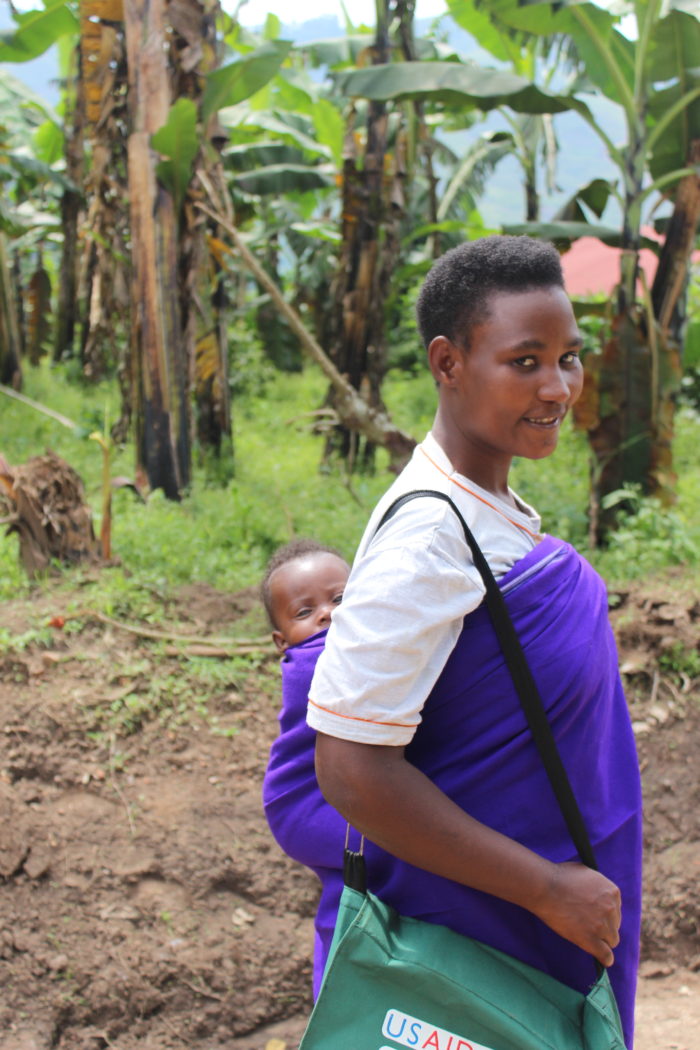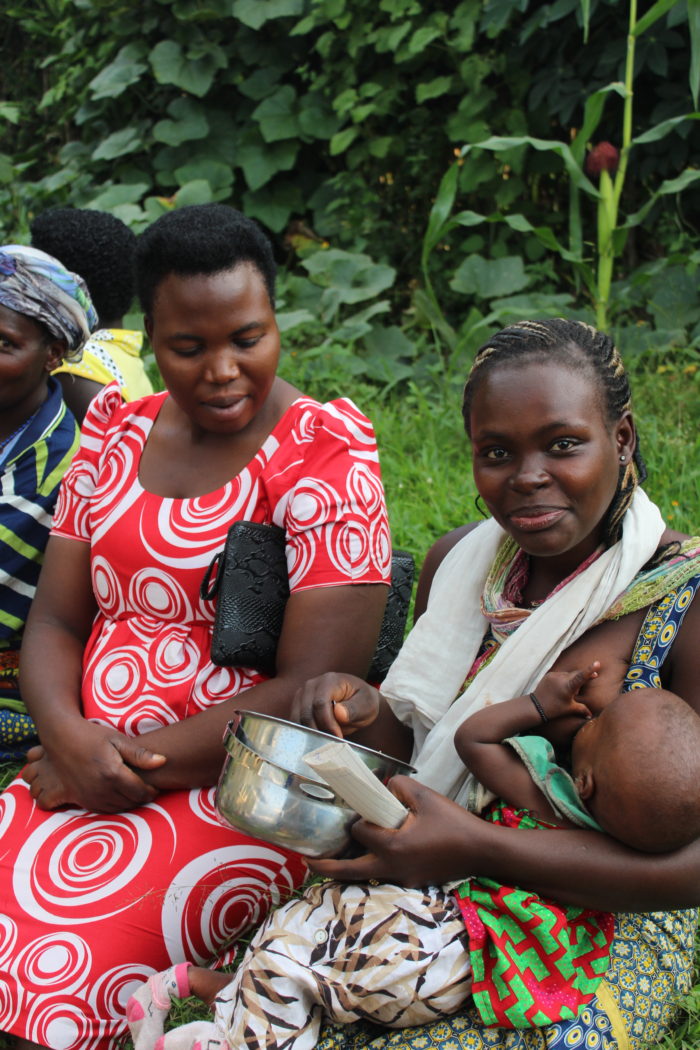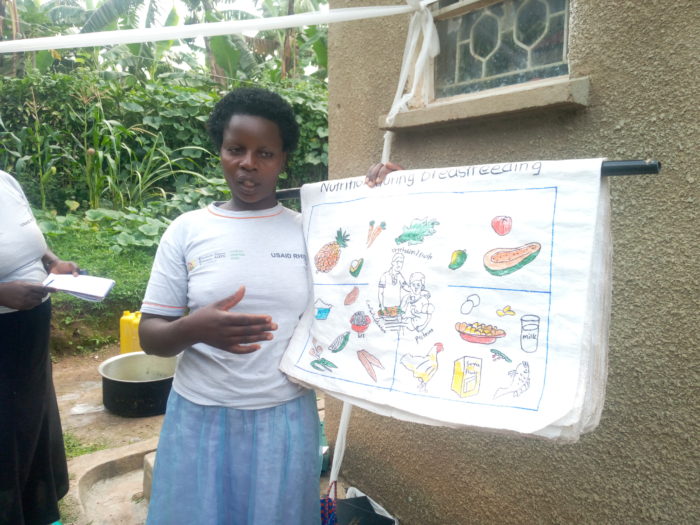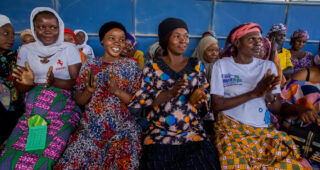Breastfeeding: A Mother’s Gift
Aug. 1 – Aug. 7 is World Breastfeeding Week. We are proud of the work that our on-the-ground partners are doing to promote breastfeeding and improve the health of infants in their communities. Meet one of our breastfeeding advocates.

Topista Kyohairwe, 24, is a family health peer facilitator in Bwoga Parish, Rwengwe Subcounty in southwest Uganda. She belongs to a cadre of change agents popularly known as “the women with the green bags.” These peer facilitators work in their communities to improve maternal, neonatal, and child health. Each group of facilitators includes two women in their 20s and two women in their late 30s ensuring that all women of reproductive age in their community are catered to by peers.
Topista and her colleagues encourage mothers to give their infants the gift of health through breastfeeding. According to the World Health Organization (WHO), infants should be fed exclusively with breast milk during their first six months of life. Breast milk protects infants against infectious and chronic diseases and helps them recover more quickly from common childhood illnesses.
WHO recommends that mothers living with HIV should also breastfeed—as long as they are adhering to antiretroviral medication prescribed through a prevention of mother-to-child HIV transmission (PMTCT) program.
As a breastfeeding working mom, Topista carries her training manual in her hand and her baby on her back as she travels throughout her community—whether she is visiting a new mom, counseling a troubled teenager, or facilitating a family health conversation. Throughout the day, she takes time to feed her baby and to keep herself hydrated and well fed. She knows all too well the struggles of young mothers.
 “Some of the younger women are worried their breasts will fall,” she says. “Others don’t have mothers [or other older] women to show them properly how to hold and feed the baby for enough time.”
“Some of the younger women are worried their breasts will fall,” she says. “Others don’t have mothers [or other older] women to show them properly how to hold and feed the baby for enough time.”
“When mothers in our area have a baby, we visit them at home to help them position the baby and help them take their time with each breast.” During her visits and at group meetings, Topista addresses myths old and new around breastfeeding.
Topista admits that she learned the value of breastfeeding during her family health training, facilitated by Elizabeth Glaser Pediatric Aids Foundation (EGPAF) with support from USAID under Regional Health Integration to Enhance Services (RHITES-SW). Before the training she, too, had believed some of the myths in her village, like the notion that infants should be fed solid food to make them gain weight.
Now Topista knows that infants thrive best on breast milk and that mothers need to pay close attention to their own diets to ensure that their babies get the nutrients they need.
“Today at a group session we prepared a healthy meal with diary, protein, and lots of vegetables,” says Topista. “Pregnant women, children and breastfeeding moms are the first to eat at the meeting because good milk also comes when we eat well and are happy.”
 The peer facilitators always end such family health encounters with reminders on a range of health issues, including family planning, HIV testing and care, malaria control, and the importance of clean water and sanitation.
The peer facilitators always end such family health encounters with reminders on a range of health issues, including family planning, HIV testing and care, malaria control, and the importance of clean water and sanitation.
WHO has set a global target that 50 percent of infants will be exclusively breastfed during their first six months of life by 2025. Uganda is one of the countries that is making promising progress. This initiative is one way that USAID is helping to bridge the information and support gaps so that they can empower women and improve the health of their babies.
Amanda Ntambiko
Uganda
Prevention of Mother-to-Child Transmission



